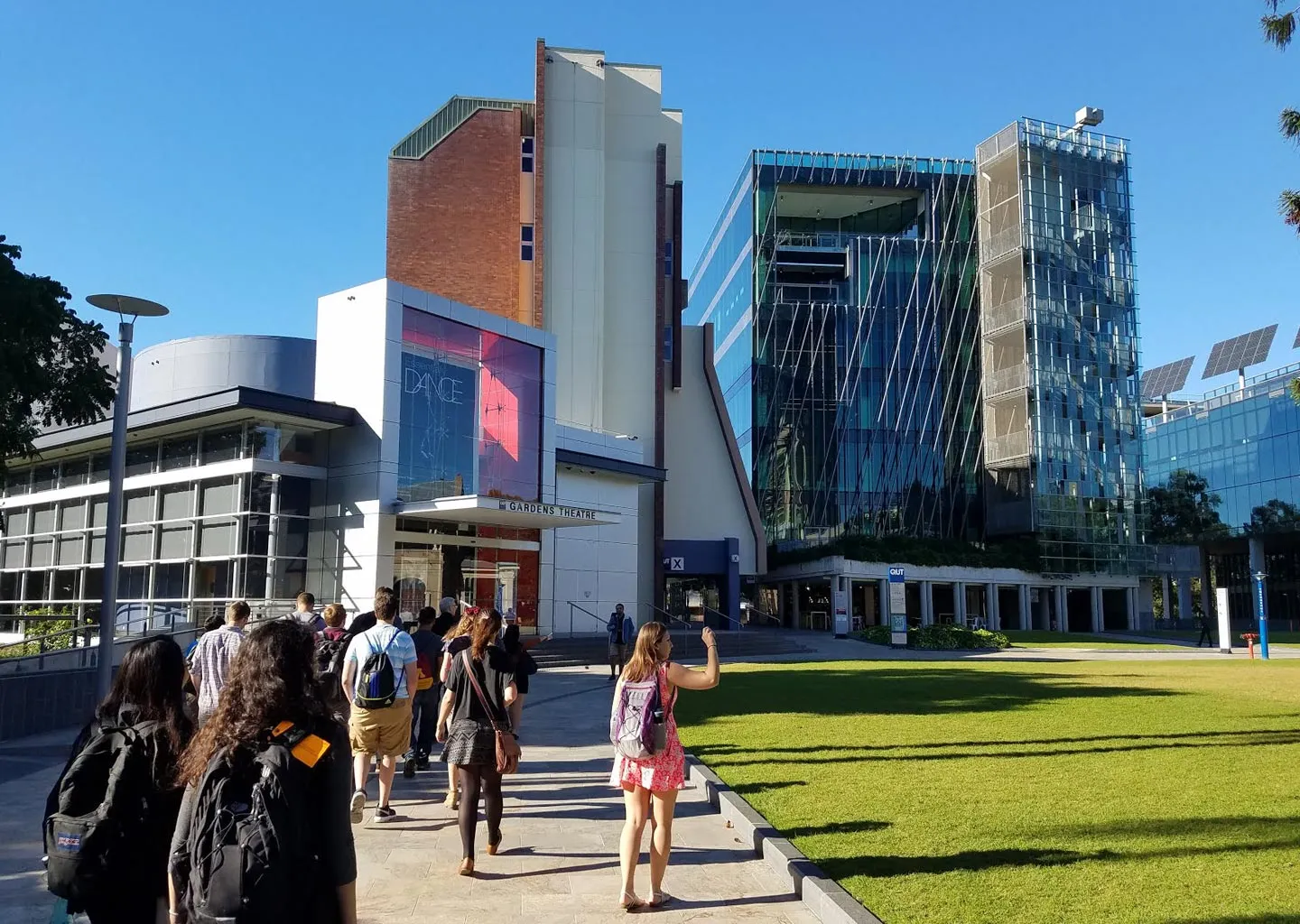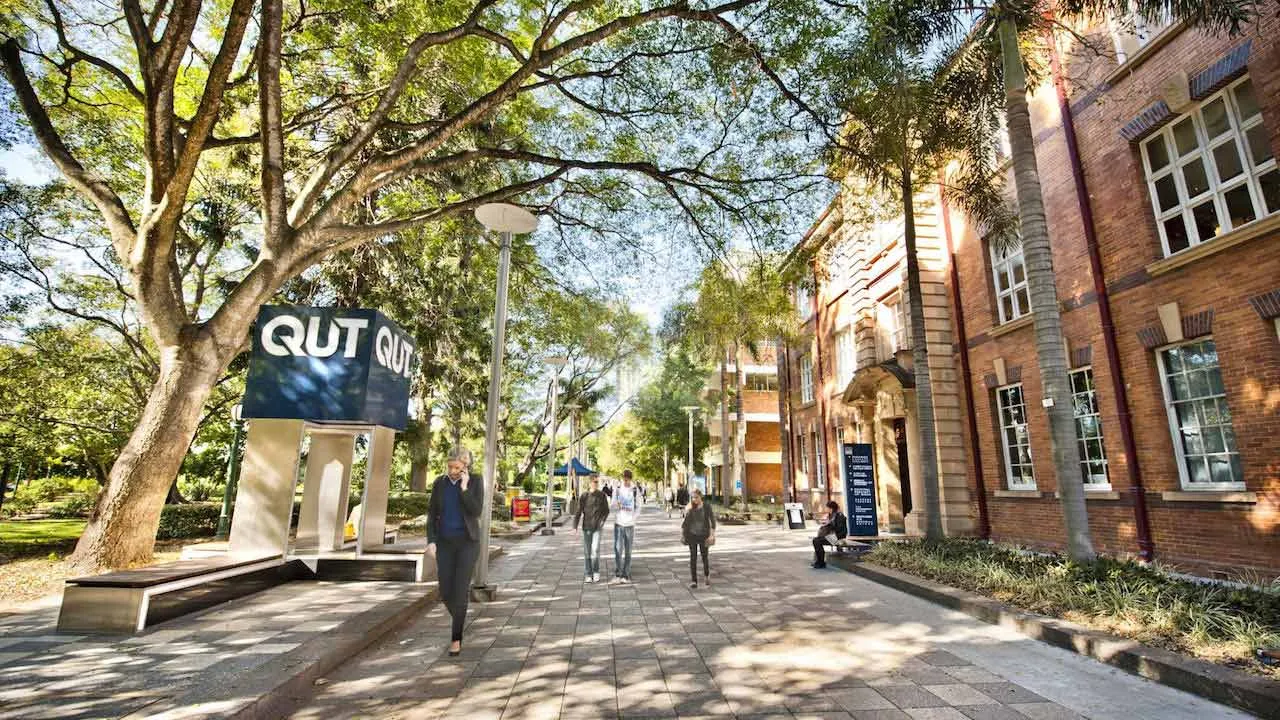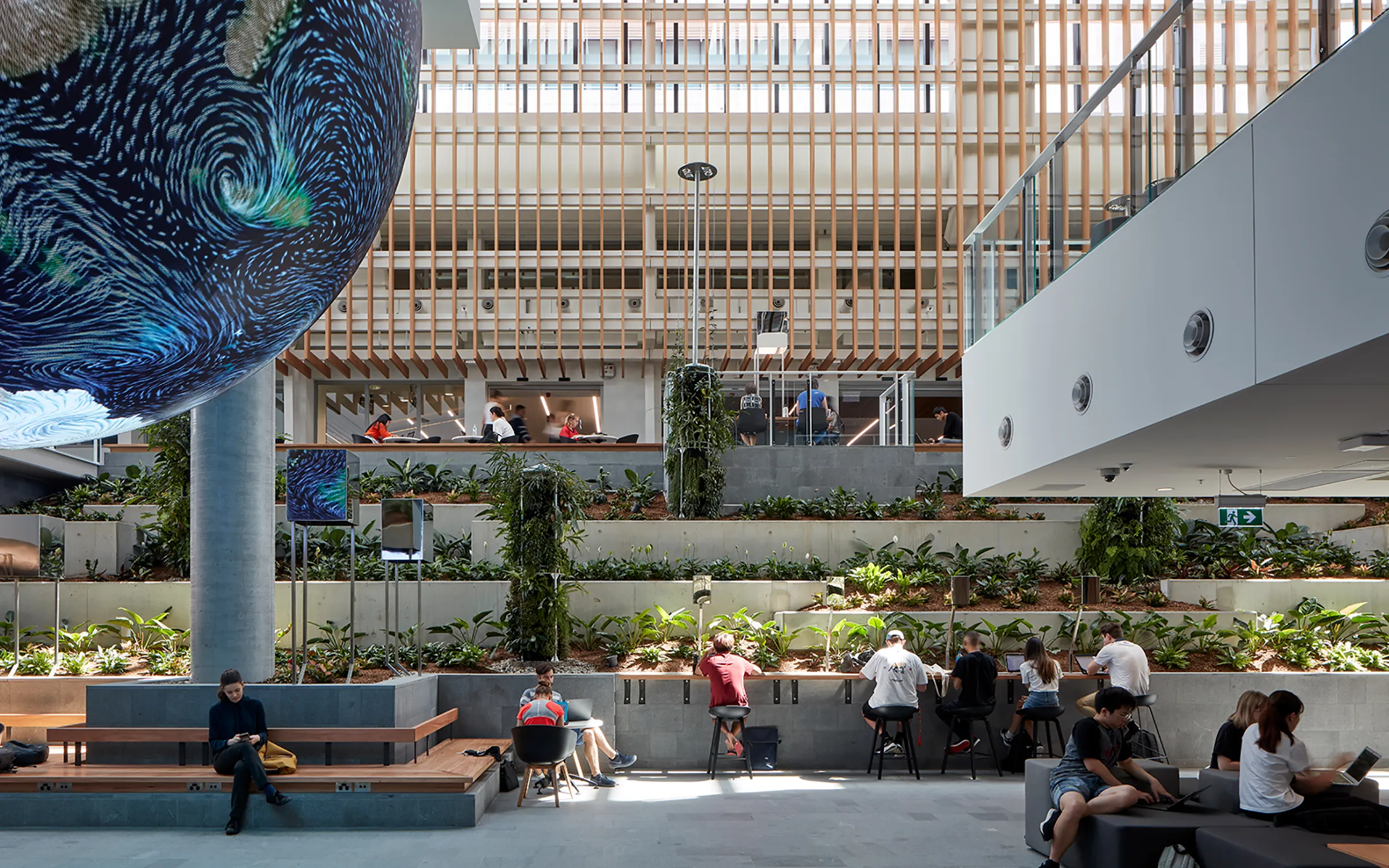About

University Type
Public

Brisbane,
Australia

Year Established:
1989
The Queensland University of Technology (QUT) is a public research university located in the urban coastal city of Brisbane, Queensland, Australia. QUT is located on two campuses in the Brisbane area viz. Gardens Point and Kelvin Grove. The university in its current form was founded in 1989, when the Queensland Institute of Technology (QIT) was made a university through the Queensland University of Technology Act 1988, with the resulting Queensland University of Technology beginning its operations in January 1989. In 1990, the Brisbane College of Advanced Education merged with QUT.
In 2020, QUT has 52,672 students enrolled (composed of 39,156 undergraduate students, 10,390 postgraduate students, and 661 non-award students), employs 5,049 full-time equivalent (FTE) staff members, total revenue of $1.054 billion, and a total expenditure of $1.028 billion
Rankings

#226
QS

#182
USNews

#225
THE
Queensland University of Technology Program Rankings
-
Civil (Honours) (UG) - Rank #101 (QS)
-
Electrical & Aerospace (Honours) (UG) - Rank #151 (QS)
-
Electrical & Renewable Power (Honours) (UG) - Rank #151 (QS)
-
Electrical (Honours) (UG) - Rank #151 (QS)
-
Mechanical (Honours) (UG) - Rank #151 (QS)
-
Mechatronics (Honours) (UG) - Rank #151 (QS)
-
Medical (Honours) (UG) - Rank #151 (QS)
-
Computer & Software Systems (Honours) (UG) - Rank #182 (QS)
-
Chemical & Sustainable Process (Honours) (UG) - Rank #201 (QS)
Queensland University of Technology Highlights
FAQs
What are the most popular graduate programs offered at Queensland University of Technology?
Queensland University of Technology (QUT) is renowned for its strong focus on technical and professional programs. Popular graduate programs include Business Administration, Engineering, Health Sciences, Information Technology, and Creative Industries. These programs are designed to integrate practical skills with academic excellence, preparing students for successful careers in their respective fields.
What is the Annual Cost of attendance at Queensland University of Technology?
The annual tuition fee for international students at QUT ranges approximately from AUD 30,000 to AUD 50,000, depending on the program. The cost of living, including accommodation, food, and other expenses, is about AUD 20,000 per year. As of the latest exchange rate, the total average cost of attendance per year is around AUD 50,000, which equates to approximately INR 27,00,000.
What Financial aid and scholarship options are available at Queensland University of Technology?
QUT offers a variety of scholarships to support both domestic and international students. These include merit-based scholarships, research grants, and financial hardship scholarships. Prospective students can apply through the QUT official website, where they can find eligibility criteria and application deadlines. It's advisable to apply early as some scholarships are highly competitive.
What is the reputation and ranking of Queensland University of Technology?
Queensland University of Technology consistently ranks highly both nationally and internationally. Notably, QUT's Business School is often ranked among the top in Australia. Additionally, its Creative Industries Faculty is recognized globally, enhancing its reputation as a leader in fostering innovation and creativity in higher education.
What is the campus culture like at Queensland University of Technology?
QUT boasts a vibrant campus life rich in diversity and activity. The university hosts numerous cultural fests, sports events, and workshops throughout the year. Students can engage with over 100 clubs and societies that cater to a wide range of interests including academic, cultural, recreational, and political groups. This dynamic environment encourages students to thrive both personally and academically.
What are the housing options at Queensland University of Technology?
QUT offers a range of on-campus housing options which provide a supportive and secure environment for students. These include shared apartments and studio units. For those preferring off-campus living, popular areas include Kelvin Grove, Fortitude Valley, and South Brisbane. These neighborhoods offer various rental options and are conveniently located near public transport routes, making commuting to campus easy.





